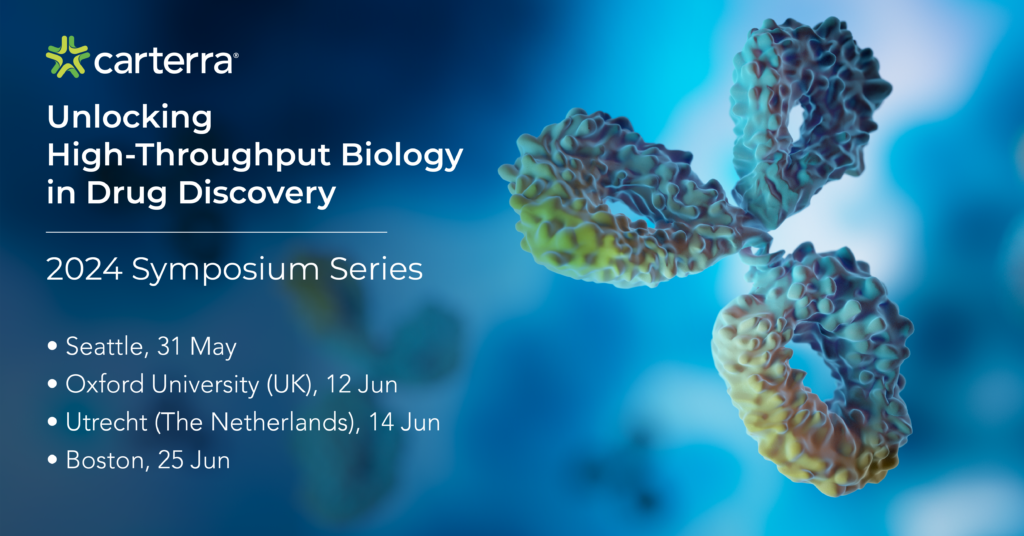Free Symposia: Unlocking High-Throughput Biology in Drug Discovery

Carterra is pleased to invite you to their upcoming symposia focused on high-throughput drug discovery. Industry and academic scientists will present new paradigms in discovery, applications, and workflows including HT-SPR.
View titles/abstracts and register at one of the following locations:
Utrecht (The Netherlands) Boston
Topics include:
- New methods in antibody discovery and small molecules (such as DELs and PROTAC®s)
- Innovations using HT-SPR for drug discovery
- Challenging assay formats, such as membrane targets and rapid binders
- Strategies to streamline characterization workflows
- Best practices in experimental design and analysis
This will be a great time to network with industry leaders and discover new ways to enhance your research. Lunch will be provided. We look forward to seeing you!
Do you have questions? Please reach out to Cheri Salazar, Sr. Marketing Manager, at csalazar@carterra-bio.com.
2024 companies presenting: 
You can view the slides from some of the 2023 presentations.
